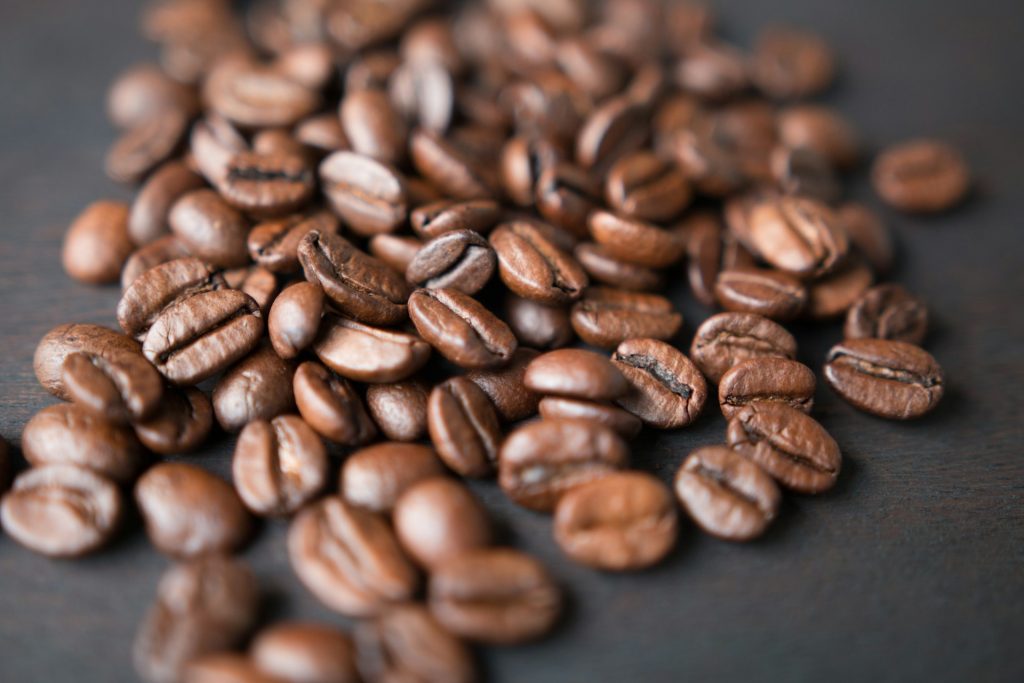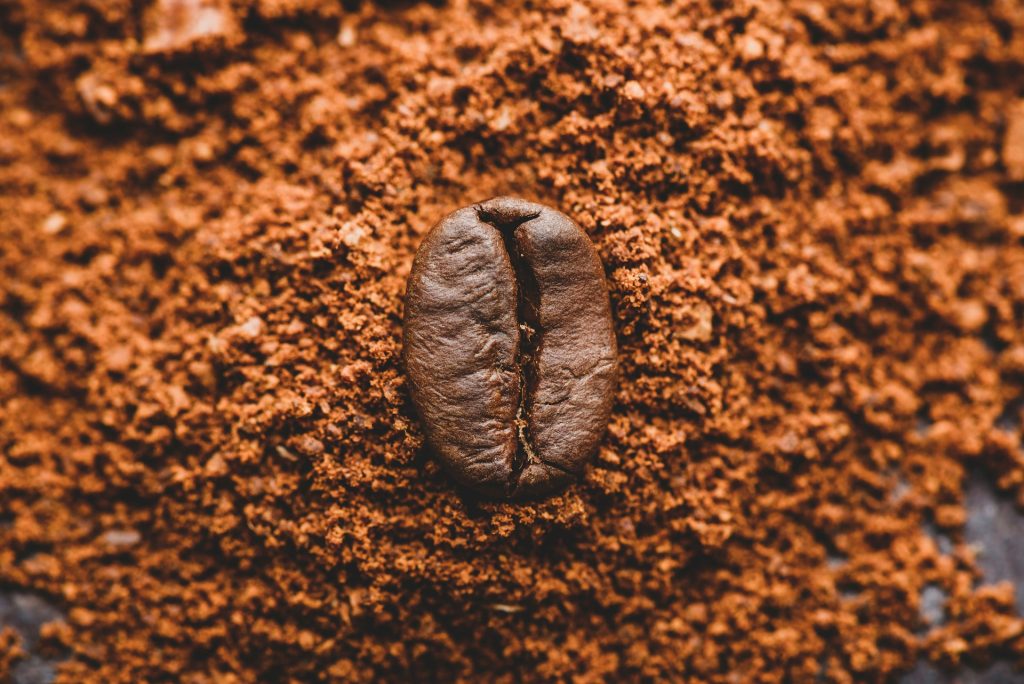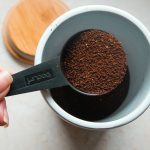Table of Contents
When it comes to fueling our days, the battle between instant coffee and ground coffee is a familiar one. Instant coffee is a cup of predictability, processed and preserved in packaging that assures a consistent sip every time. On the other hand, ground coffee is not processed in the same way, and once it hits the air, it begins its natural deterioration process. Where natural coffee and its essential oils hold the promise of complex flavors, instant coffee often trades depth for convenience.
For those monitoring their caffeine intake, the caffeine content compared to instant coffee can be higher in ground coffee beans, depending on the bean and roast. Each instant coffee brand works to capture the essence of coffee extract in its formula, but as any coffee lover knows, coffee loses something when it’s not freshly brewed. Still, the choice often comes down to how quickly one wants to enjoy their drink and get on with their day.
What is Ground Coffee?
Ground coffee is the result of grinding roasted robusta beans or their arabica cousins, creating a range of flavor profiles for the discerning palate. To brew ground coffee, one must have the right equipment and a little patience, but the reward is a cup of freshly brewed coffee that instant and ground coffee lovers covet. The shelf life of ground coffee is shorter than instant, as the production process leaves the coffee’s essential oils exposed to air, hastening the loss of flavor and aroma.
With ground coffee, the caffeine levels can vary greatly, influenced by factors such as the type of bean, the roast, and how it’s brewed. The robusta beans used in many blends offer a stronger, more bitter taste, and often a higher caffeine punch than arabica. The production process for ground coffee, involving roasting and grinding, aims to preserve the integrity of these flavors until the moment of brewing.
Ground coffee enthusiasts argue that nothing beats the freshness and nuanced flavors that come from their morning ritual. Yet, while the shelf life of ground coffee may seem like a drawback, many see it as a commitment to quality and taste that instant coffee typically cannot rival.
What is Instant Coffee?
Instant coffee, often made from robusta beans, is a marvel of convenience. The production process involves brewing coffee and then removing the water to create coffee granules or powder. These granules can be rehydrated with hot water to produce a drink that’s ready in moments. Instant coffee typically has a longer shelf life than ground coffee and can be a staple in many a pantry for its ease of storage and preparation.
The caffeine levels in instant coffee vary greatly, but on average, they tend to be slightly lower than those found in freshly brewed coffee made from ground beans. This variance can make instant coffee a preferred choice for those seeking a milder effect. The production process for instant coffee seeks to capture the essence of the coffee flavor, but aficionados argue that it can never quite match the complexity of its ground counterpart.

Instant Coffee vs Ground Coffee: A Detailed Comparison
Comparing instant coffee vs ground coffee is a tale of two brews. Ground coffee invites enthusiasts to explore coffee brewing techniques, from French press to coffee pods, each method extracting unique flavors from the beans. Light roast, dark roast, coffee blends—the variety is endless. Coffee shops often feature a range of ground options, while instant coffees cater to the on-the-go lifestyle. Whether it’s a steaming mug of iced coffee, a smooth cold brew, or a quick cup from a coffee machine, every coffee lover has their preference.
Flavor Profiles
When it comes to flavor, ground coffee boasts a spectrum that ranges from the sweet, delicate notes of a light roast to the bold, smoky flavors of a dark roast. The essential oils and soluble compounds in ground coffee beans are responsible for the intricate flavors and aromas that coffee connoisseurs cherish. These compounds are most potent immediately after brewing and diminish as the coffee cools and ages.
Instant coffee, while not as rich in flavor, offers consistency and convenience. The freeze-drying or spray-drying methods used in its production process aim to retain the coffee’s core flavors. However, the result is often a simpler profile with less nuance than ground coffee. Despite this, improvements in manufacturing have led to higher-quality instant coffee options that strive to bridge the gap in flavor.
Caffeine Content Variations
The caffeine content in a cup of instant coffee can be a little less than what you’d find in a similarly sized serving of ground coffee. This difference is due to the different production processes and coffee bean types used in instant coffee formulas. Instant coffee is designed to dissolve quickly in hot water, which may affect the concentration of caffeine.
Ground coffee caffeine content can vary based on the bean type, roast level, and brewing method. Darker roasts contain slightly less caffeine than lighter roasts due to the extended roasting process. The brewing time and temperature also play a role in how much caffeine is extracted from ground coffee, allowing for a more customized caffeine experience.
Convenience and Preparation Time
Instant coffee wins hands down in the convenience arena. With no need for special equipment or brewing time, it’s as simple as adding hot water to the coffee granules and stirring. This ease of preparation makes instant coffee a staple for those with busy mornings or for travelers who may not have access to a coffee maker.
Ground coffee, while requiring more time and equipment to prepare, offers a ritualistic experience that many coffee drinkers savor. The process of measuring, brewing, and waiting for the coffee to steep is a beloved routine that starts the day with a moment of calm. While it may take longer, the result is a fresher, more flavorful cup that many believe is worth the extra effort.
Comparing Shelf Life and Freshness
When it comes to shelf life, instant coffee has a ground coffee beat. Sealed and dry, it can last for years without significant loss of flavor and aroma. This is an important consideration for those who don’t drink coffee regularly but still want to have it available. Instant coffee’s longevity is due to its lack of essential oils, which can go rancid and degrade over time in ground coffee.
Ground coffee, on the other hand, is best enjoyed soon after it’s ground to maximize its freshness, flavor, and aroma. Once ground, coffee begins to oxidize, and its volatile compounds start to dissipate. This process accelerates once the coffee is brewed, which is why many coffee lovers grind their beans just before brewing to ensure the freshest taste.
Price Points
When comparing the cost of instant coffee vs ground coffee, instant varieties generally come out as more wallet-friendly. The lower price point, coupled with the ease of preparation, makes instant coffee an attractive option for those looking to save both time and money. Bulk purchases and generic instant coffee brand options can further reduce the cost per cup.
Ground coffee can be more expensive, especially when opting for specialty beans or blends. However, many coffee drinkers are willing to pay a premium for the quality and depth of flavor that ground coffee provides. The price can also reflect the production process, which for ground coffee, involves more steps and care to preserve the bean’s natural characteristics and flavor profile.
Potential Health Risks
When it comes to coffee, moderation is key. Both instant and ground coffee contain acrylamide, a chemical formed during the roasting process. High levels of acrylamide intake have raised concerns regarding cancer risk, though typical coffee consumption isn’t harmful. However, it’s important to keep in mind that excessive intake of caffeine, from either type of coffee, can lead to restlessness, anxiety, and heart palpitations, and may disrupt sleep.
Furthermore, unfiltered coffee, like that from a French press, contains compounds that may raise cholesterol levels. For folks watching their heart health, it’s best to opt for filtered methods, whether you’re brewing a cup of ground coffee or stirring up some instant granules. Always consult a healthcare provider about your coffee consumption if you have health concerns.
Potential Health Benefits
Coffee lovers rejoice—your regular coffee habit might be doing you some good! Studies indicate that both instant and ground coffee are packed with antioxidants, which can reduce inflammation and protect against diseases like Parkinson’s and Alzheimer’s. Also, regular consumption of coffee has been associated with a lower risk of type 2 diabetes and some forms of cancer.
It’s not just about the antioxidants, though. The caffeine in a cup of ground coffee or its instant counterpart can boost mental alertness and even aid in weight management by increasing metabolism. Just remember to enjoy these benefits without overdoing it, as too much caffeine can backfire on your health goals.

When to Choose Ground Coffee
If you’re looking for the full coffee experience, ground coffee is the way to go. The aroma of freshly ground beans is hard to beat, and the flavor is often more complex and robust than instant. For those who appreciate the art of brewing, ground coffee offers various methods to play with, from drip to espresso to the French press. It’s perfect for those lazy Sunday mornings when you have time to savor the brewing process and enjoy the result.
Ground coffee is also the choice for customization. Whether you like a light city roast or a dark, smoky French roast, grinding your beans allows for more control over the grind size, which affects extraction and taste. Plus, for anyone concerned about freshness, ground coffee can be consumed at its peak flavor just after grinding, ensuring a superior taste experience.
When to Choose Instant Coffee
Instant coffee shines in its convenience and speed. It’s perfect for busy mornings, travel, or when you need a quick caffeine fix without the fuss. For those who juggle a million tasks and don’t have the luxury of time to brew a regular coffee, instant offers a practical solution without the need for equipment or brewing skills.
Let’s not forget the shelf life. Instant coffee can last a long time, making it a staple for those who don’t drink coffee frequently but want it on hand. It’s also budget-friendly, generally costing less than whole or ground beans. For students, campers, or those with a tight budget, instant coffee is an accessible option that doesn’t break the bank.
Instant coffee is also versatile. It can be used in recipes, from baking to cooking, adding a depth of flavor without the need to brew a pot. Choose instant when convenience, versatility, and cost are your top priorities, or when you’re far from a coffee maker but close to a kettle or microwave.
Tips for Selecting Quality Ground Coffee
For true coffee aficionados, selecting quality ground coffee is like choosing the perfect wine—it’s all about the notes, the body, and the finish.
Pay Attention to the Roast Date
When hunting for the freshest ground coffee, keep an eye peeled for the roast date. Freshness is fleeting, and coffee is no exception. The closer you are to the roast date, the more flavorful your cup will be. Think of it as the difference between a freshly baked loaf of bread and one that’s been sitting on the shelf for a week.
Most specialty roasters will print the roast date on the bag, so give that label a once-over before you commit. Coffee is at its peak within a few days to a couple of weeks after roasting, so aim to buy beans that have been roasted within that time frame for the best experience.
Choose 100% Arabica Beans
Arabica beans are the divas of the coffee world, demanding high altitudes and plenty of attention, but they reward you with a softer, sweeter cup. When you’re picking out ground coffee, look for bags labeled 100% Arabica. It’s a clue that you’re getting the good stuff, not a blend with the more bitter and robust Robusta beans.
While Arabica beans might cost a bit more, they’re worth the splurge for the depth of flavor and aroma they bring. So, if you want to treat your taste buds to a symphony rather than a solo, Arabica is the way to go.
Buy from Reputable Roasters
Reputable roasters are like the trustworthy bakers of the coffee world. They source their beans ethically, roast them with care, and often provide a backstory that’s as rich as the coffee itself. By buying from these roasters, you’re not only getting quality coffee, but you’re also supporting sustainable practices and fair wages for farmers.
Do a little digging, read reviews, and ask around. Coffee communities love to share their favorite roasters, and there’s a certain joy in discovering a roaster who aligns with your taste and values. Plus, you might just stumble upon a new favorite blend that could become your morning ritual.
Consider the Grind Size
When it comes to ground coffee, grind size matters more than you might think. For instance, espresso requires a fine grind to extract the right flavor, while a French press needs a coarser grind to avoid a muddy cup. If the grind is too fine for your brewing method, you’ll end up with an over-extracted brew, bitter and harsh. Conversely, too coarse a grind will under-extract, leaving you with a weak, sour cup. So, whether you’re using a drip brewer, an Aeropress, or a pour-over, getting the grind right is crucial for that perfect cup.
Smell and Taste if Possible
Now, if you want to dive into the world of quality ground coffee, you’ve got to use your senses. Before brewing, take a moment to smell the grounds. Freshness radiates through the aroma, and you can often detect hints of the flavor profile, like chocolate, berries, or nuts. This sensory check is a little moment of anticipation before the first sip. It’s a preview of the joy that’s about to unfold as soon as the hot water hits the grounds and the brewing magic begins.
And when it comes to taste, if you have the chance, don’t shy away from a taste test. Quality coffee shops often offer samples or sell small bags for you to try at home. Tasting the coffee without milk and sugar first allows you to appreciate its natural flavors. Afterward, you can adjust the additions to complement the brew, not mask it. Understanding what you enjoy in a cup of coffee can guide you to make better choices, whether for a morning jolt or a leisurely afternoon break.
Tips for Selecting Quality Instant Coffee
Selecting a quality instant coffee isn’t as daunting as it seems. While the options are fewer than with ground coffee, there are still key factors to consider to ensure your quick cup doesn’t sacrifice too much in the way of flavor.
Choose Well-Known Brands
When shopping for instant coffee, starting with well-known brands can be a safe bet. These brands have established reputations for consistency and quality. They’ve perfected their craft over years, sometimes decades, and have the resources to source better coffee beans. Plus, they often have a range of options, from light to dark roasts, giving you some variety even within the realm of convenience.
But why does brand recognition matter? Larger brands usually have the means to invest in better sourcing and processing methods, which can result in a tastier cup of instant coffee. They may also offer special blends or single-origin packs, allowing you to explore different tastes without deviating from the trusted quality these brands are known for.
Look for 100% Arabica Beans
For those in the know, 100% Arabica beans are often synonymous with quality in the coffee world. When selecting instant coffee, look for options that highlight the use of Arabica beans. These beans are prized for their smoother and more nuanced flavors compared to the more robust but harsher Robusta beans. Arabica beans can provide a more pleasant and complex experience, even in instant form.
Check the Roast Level
Ranging from light to dark, the roast level of coffee beans significantly impacts the flavor of your brew. Instant coffee is no exception. Light roasts can offer a milder, more acidic taste, while dark roasts provide a stronger, bolder flavor. Checking the roast level on the packaging can give you a hint about the taste profile you’re about to enjoy. It also helps you match the coffee to your preference, so you’re not caught off guard by a taste that’s too mild or too intense for your liking.
Moreover, the roast level can affect the coffee’s bitterness and strength. A medium roast typically strikes a nice balance, offering some of the acidity of lighter roasts with the rich, full-bodied characteristics of darker roasts. Keep in mind that the roast level is about more than just the color of the beans; it’s about finding the flavor that feels like home in a cup.
Opt for Freeze-Dried Over Spray-Dried
When it comes to instant coffee, the drying method used can make a world of difference in flavor. Freeze-dried instant coffee is generally the superior choice, as it preserves more of the coffee’s original taste and aroma. This process involves freezing the coffee extract and then removing the water under a vacuum, which results in larger, more flavorful granules.
Compared to spray-dried instant coffee, which blasts hot air to dry the liquid coffee, freeze-dried coffee maintains more of the bean’s integrity. Spray drying is harsher and can lead to a loss of the delicate flavors that coffee aficionados cherish. So, if you’re after a cup that comes closer to the taste of a freshly brewed pot, freeze-dried is the way to go.
Read Reviews and Descriptions
Don’t underestimate the power of reviews and product descriptions when it comes to choosing instant coffee. Other coffee lovers can be your best resource, offering insights into the taste and quality of different brands and varieties. Reviews can reveal whether an instant coffee is surprisingly delightful or underwhelming, saving you the disappointment of a lackluster brew.
Product descriptions are also handy, detailing the origin of the beans, the flavor notes you might detect, and the roast level. They can guide you to an instant coffee that aligns with your preferences, whether you’re after a bold, dark roast or a light, fruity blend. By reading up before you buy, you’re more likely to find an instant coffee you’ll enjoy, even on those rushed mornings.

Frequently Asked Questions
1. Is instant coffee less caffeinated than ground coffee?
On average, instant coffee does tend to have slightly less caffeine compared to its ground counterpart. But the difference isn’t stark—usually just a few milligrams. So, if you’re monitoring your caffeine intake, instant coffee might offer a slight edge, but remember, the serving size and brand can affect caffeine content too.
2. Can instant coffee be as flavorful as ground coffee?
Flavor-wise, instant coffee has come a long way, with some brands offering a range of tastes that can rival ground coffee. However, typically, ground coffee provides a more complex and nuanced flavor profile due to the preservation of oils and compounds lost in the instant coffee manufacturing process.
3. Is instant coffee easier to make than ground coffee?
Without a doubt, instant coffee wins the convenience battle. It requires no special equipment—just hot water and a mug. This ease of preparation is perfect for those who value speed and simplicity in their coffee routine or for situations where brewing equipment isn’t available, like in a hotel room or office.
Ground coffee, on the other hand, requires a bit more effort. Whether you’re using a drip machine, a pour-over setup, or a French press, there’s a process and a bit of clean-up involved. But for many, the ritual of brewing and the superior taste are worth the extra steps.
Ground Coffee or Instant Coffee: Final Thoughts
At the end of the day, whether it’s the robust flavor of freshly ground coffee from the finest Arabica and Robusta varieties or the convenience of soluble coffee crystals, the choice between instant and ground coffee often boils down to personal preference and lifestyle. Brewing ground coffee certainly requires more equipment, like an electric or hand grinder and a drip coffee maker, but for those who savor the ritual and rich, straightforward flavor, it’s worth the extra steps. On the other hand, instant coffee’s process of drying and freezing into powdered coffee provides a quick caffeine fix with less hassle, even if some of the caffeine lost in the process is a trade-off for some.
For a recipe that calls for coffee, using finely ground coffee will not dissolve the same way as instant coffee, which is dried and cooled into a convenient coffee concentrate. And let’s not forget, adding milk and sugar can transform either type of coffee into a delicious cup of coffee catered to your taste. Ultimately, whether you’re reaching for the coffee grounds first thing in the morning or stirring instant coffee crystals into hot water, enjoy each cup knowing you’ve chosen what suits your palette and pace of life best.

I’m Audrey, a dedicated mother of teenagers with an insatiable love for coffee. On BeanBrewLove.com, I intertwine my need for caffeine with reflections on life. Whether expressing a nostalgic sentiment or injecting a hint of sarcasm, my blog is a reservoir of coffee culture, brewing techniques, and global coffee reviews.




